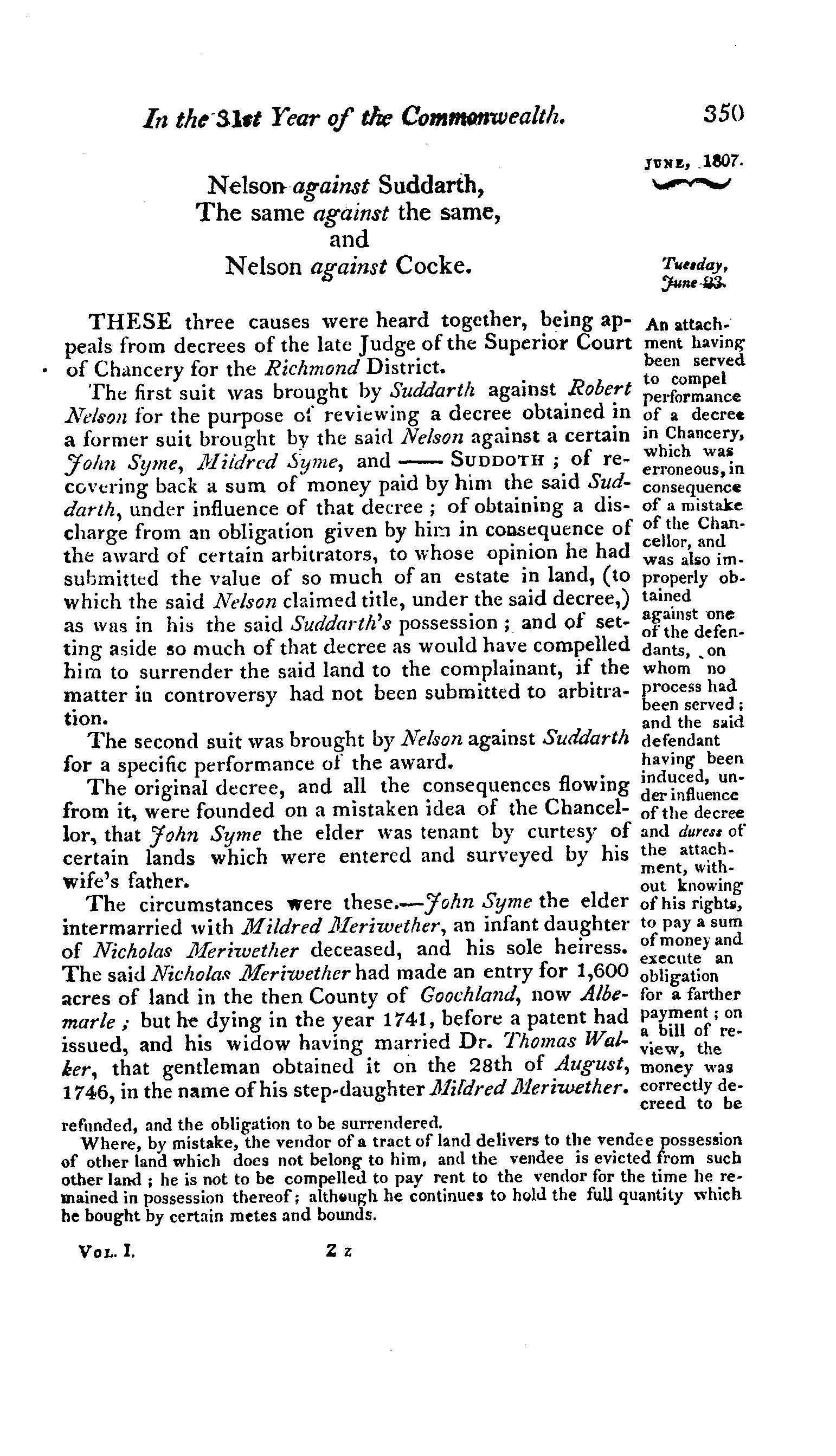Nelson v. Suddarth

Nelson v. Suddarth, 11 Va. (1 Hen. & M.) 350 (1807),[1] consisted of three separate cases surrounding a longstanding dispute over 1600 acres of land.
Background
John Syme, Sr. married Mildred Meriwether, an underage heiress. On August 28, 1746, Mildred inherited 1,600 acres of land in Albemarle County, however, the land was never officially patented. In 1754, Mildred died leaving three children, one of whom was John Syme, Jr. On August 26, 1755, John Syme, Sr. sold Mildred’s land to William Nelson, the father of Robert and William Nelson, Jr. After William Nelson, Sr.’s death, Robert, William Nelson, Jr., and John Syme, Jr. all sued for possession of the 1600 acres. On June 20, 1791, John Syme, Jr. obtained a patent for 400 acres and sold it to Suddarth. Upon hearing that the Nelson brothers also claimed title to the land, Suddarth refused to pay, prompting John to sue the Nelson brothers in the High Court of Chancery. John died not long after the suit began and it was continued by his children. In that case, Chancellor Wythe mistook John as a tenant and found favor of Robert Nelson. This error prompted three additional lawsuits of which led to this case. In the first suit, Suddarth sued Robert in the High Court of Chancery. Suddarth asked the court to review an arbitration award Robert obtained against John Syme, Mildred Syme, and Suddarth. The award ordered Suddarth to pay Robert for land Suddarth possessed but Nelson claimed title to. In the second case, Robert sued Suddarth for specific performance of the arbitration award. In the final suit, Robert sued James P. Cocke. Robert alleged that he sold James the 1600 acres which accidently included a right of entry that Robert possessed from John Syme, Jr. Robert requested the court order James pay him rent for the right of entry.
The Court's Decision
Chancellor Wythe admitted his initial decree was erroneous because Nelson had no title to the land. Subsequently, Wythe dismissed all three cases. The Court of Appeals unanimously affirmed the decisions in all three law suits.
See also
References
- ↑ William Hening and William Munford, Reports of Cases Argued and Determined in the Supreme Court of Appeals of Virginia: With Select Cases, Relating Chiefly to Points of Practice, Decided by the Superior Court of Chancery for the Richmond District (Richmond: I. Riley, 1807), 1:350.